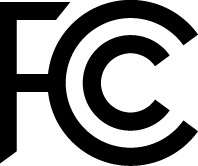FCC plans to ease wireless congestion


As convenient as public Wi-Fi hotspots can be, sometimes the slow speed is enough to drive you to distraction. It seems to annoy the Federal Communications Commission (FCC) too, and so steps have been proposed to try and improve the situation and release additional spectrum to ease the traffic burden.
At CES 2013, FCC Chairman Julius Genachowski said that the agency planned to free up approximately 195MHz of 5GHz wireless spectrum in order to try to improve the capacity of public Wi-Fi.
The FCC said that by freeing up additional spectrum resources, it would be possible to increase Wi-Fi speeds by up to 35 percent -- something the agency is still keen on implementing.
This week, the FCC said it has taken the first steps to release this additional spectrum which could give users speeds of one gigabit per second or more as well as reduce congestion in Wi-Fi hotspots. The agency has formally proposed the release of 195 megahertz of additional spectrum in the 5GHz band, as well as potentially streamlining existing rules for devices throughout this particular band.
No release date has currently given for the plans to move ahead.
Currently, anyone can use unlicensed airwaves. Private organizations and governmental bodies are known to use this particular spectrum band, which could prove an obstacle in the way of the FCC's plans. In addition, carriers including AT&T use unlicensed airwaves to help alleviate the pressure on their own data networks.
In addition to relieving the increasing congestion of public Wi-Fi spots in cities and packed areas including airports, the American agency also hopes that freeing up spectrum may prompt businesses to become more innovative in their use of spectrum -- and potentially become the catalyst for the creation of a new Wi-Fi standard, known as 802.11ac. F.C.C. commissioner Jessica Rosenworcel told the New York Times:
"These airwaves can be a colossal catalyst for new innovation. It features enough continuous spectrum to unlock the full potential of a new Wi-Fi standard, undoubtedly cool new ways of connecting await."
Speaking to PC World, U.S. carrier AT&T called the move a "step in the right direction," however also suggested that the FCC's priorities should not be focused on unlicensed spectrum bands, but organizing a public auction for commercial bodies to use spectrum below 3GHz. A spokesperson commented:
"Freeing up spectrum for unlicensed uses can also play an important role in more fully utilizing spectrum that is not ideal for mobile broadband use. We fully support efforts to explore new unlicensed technologies that can play an important role in driving incremental network efficiency."
After a period of time set aside for public comment, the agency hopes to free up the spectrum as quickly as possible.